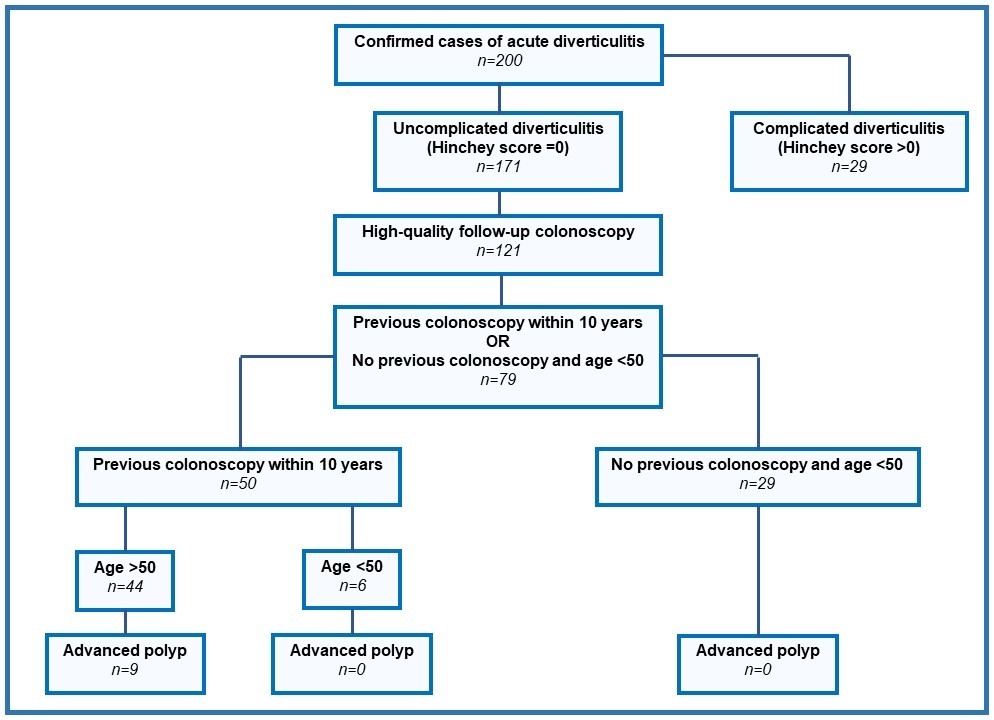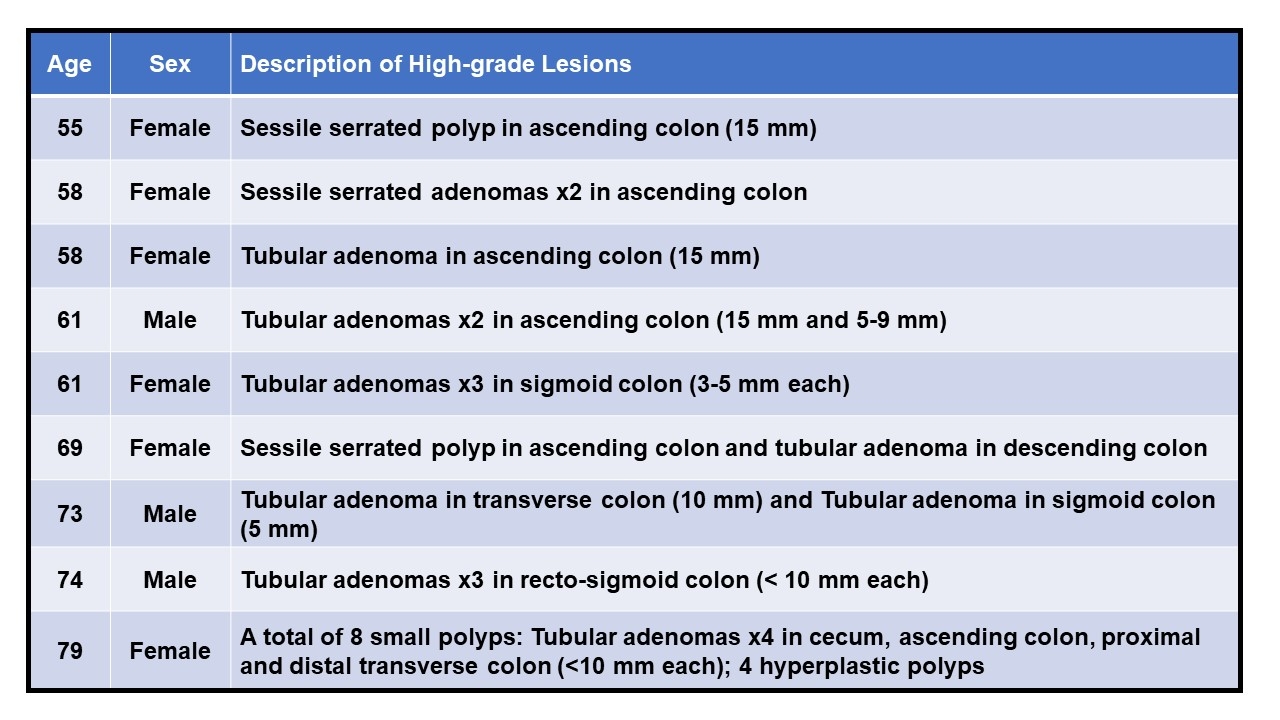ROUTINE FOLLOW-UP COLONOSCOPY IN PREVIOUSLY SCREENED PATIENTS WITH UNCOMPLICATED DIVERTICULITIS: A MULTI-DISCIPLINARY COMMUNITY HOSPITAL EXPERIENCE
Ali Haider*1, Ahmed Khattab1, Eli Ehrenpreis1,2, John Park1,3, Kunal Kochar1, Hymie Kavin1,2, Christopher Rodriguez1
1Advocate Lutheran General Hospital, Park Ridge, IL; 2Gastroenterology, Rosalind Franklin University of Medicine and Science, North Chicago, IL; 3Surgery, Rosalind Franklin University of Medicine and Science, North Chicago, IL
Background: Current guidelines recommend that patients diagnosed with acute diverticulitis undergo routine follow-up colonoscopy to rule out underlying colorectal cancer (CRC). Our literature review confirms that prior studies have excluded patients who had a high-quality index colonoscopy. Furthermore, these studies were performed at tertiary care university hospitals with limited representation of community hospital patients. We aim to investigate the incidence of advanced lesions found on follow-up colonoscopy in individuals with acute uncomplicated diverticulitis with history of previous high quality colonoscopy to determine the utility of a follow-up colonoscopy.
Methods: This is a single-center retrospective cohort study. Data for all patients with confirmed acute diverticulitis on computed tomograpghy (CT) scan between January 2014 and December 2017 was obtained from a database from the Division of Colorectal Surgery with supplementation from our electronic medical record. Of the 200 cases identified, 171(85.5%) were classified as uncomplicated (Hinchey 0) and 29 (14.5%) as complicated (Hinchey >0). We included those graded as Hinchey 0 that were treated conservatively, had a documented high-quality index colonoscopy within 10 years or were under age 50 at the time of diagnosis of diverticulitis, and underwent a follow-up colonoscopy within 1 year (Figure 1). The final study cohort consisted of 79 patients that were divided into 2 groups: Those with a previous colonoscopy within 10 years and those without a previous colonoscopy but younger than 50. Cases with previous colonoscopy were further categorized based on whether they were older or younger than age 50. Outcomes of follow-up colonoscopy, including pathologic reports, were recorded. Significant polyps were defined by AGA guidelines (Gastroenterology 2012;143:844-857). Fisher's Exact Test was used to compare parameters in patients under and over age 50.
Results: Of the 44 patients with a previous colonoscopy and older than 50, 9 cases (20.4%) were found to have significant polyps on follow-up colonoscopy, p-value =0.0038 (Figure 2). No significant polyps were found in patients younger than 50. In addition, one patient older than 50 with uncomplicated diverticulitis without a follow-up colonoscopy was diagnosed with cecal adenocarcinoma within 3 years.
Conclusions: Significant polyps were found on follow-up colonoscopy in patients over the age of 50 with acute uncomplicated diverticulitis making these patients at risk for developing CRC. Based on these findings, a follow up colonoscopy remains an important recommendation for patients older than 50 even if they had a high-quality colonoscopy within 10 years. For patients younger than 50 with or without a previous colonoscopy we recommend discussion regarding risks and benefits of colonoscopy and reference current guideline recommendations.
Case selection process and number of significant polyps in each study group.
Description of high-grade lesions found on colonoscopy.
Back to 2019 Posters




